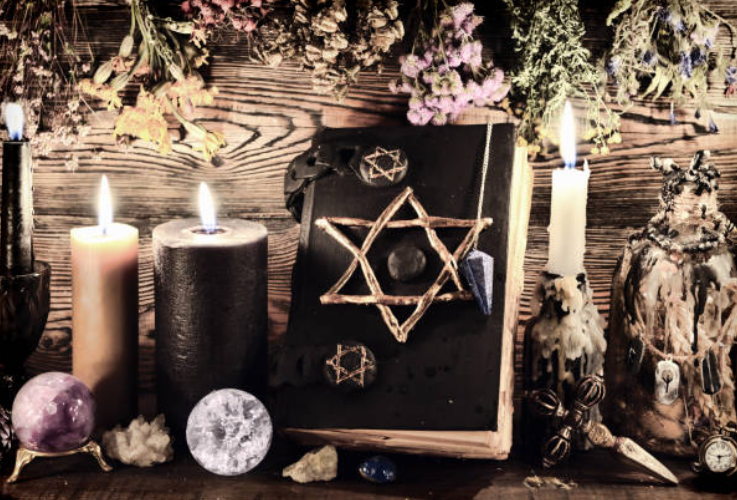What is shamanism
The word shaman comes from the Tungus tribe in Siberia. Anthropologists coined the term and used it to refer to the spiritual and ceremonial leaders of indigenous cultures around the world.
Shamanism is an ancient therapeutic healing tradition and way of life. The teachings of shamanism focus on our connection to nature and promote the well-being of all creation. In shamanic cultures, many animals are considered to be totems or spirit animals that guide individuals throughout their lives and carry messages such as the deer (wisdom), wolf (freedom) and eagle (courage). Shamanism is characterized by the fact that it is not a religion, it does not conflict with any deity or religious tradition. It is a method and an art of living centered on spirituality.
Essential aspects of shamanic life include travel, ceremony, sacred dance and pilgrimages to places of power in the wilderness.

What is a shaman
A shaman is an intermediary between this world and the unseen world of spirits. He or she acts on behalf of the community as a healer by conducting ceremonial rituals, healing people and helping to guide others to the shamanic path of initiation. The life of a shaman is to ensure the well-being of the family, the community and all of creation.
In this way, the shaman helps to maintain balance and harmony on both a personal and planetary level.
One of the significant differences between shamanic practice and other spiritual arts is the ability of the shaman to consciously move beyond the physical body to take his or her spirit into another dimension. This state of hypnosis is more commonly referred to as "transcendence" or "shamanic travel". Through this process, the shaman establishes a link between "this world" and the "other world". This state of shamanic trance towards the spiritual world was reached during ceremonies with the help of psychotropic herbs and other hallucinogens, under the rhythm of shamanic drums.
Becoming a shaman is above all an inner journey guided by the spiritual energy of the Earth.
Shaman powers
Shamans acted as mediators between the two worlds, the one we live in and the one of the spirits. They were considered as wise men with great spiritual powers. They connected with the spirits of animals and ancestors to alleviate physical ailments, such as illness, but also the spiritual dimension of spirit illness.
Shamans perform a variety of functions within their communities:
- Holistic healing
- Divination
- Supervision of sacrifices and other rituals
- The telling of songs and tales
Each tribe may have had one or more shamans who specialized in certain practices.

History of shamanism
The word shamanism can be used to describe the ancient spiritual practices of these indigenous cultures. Historically, this practice is often associated with indigenous and tribal peoples such as the Native Americans and other indigenous peoples of South America. Shamanic beliefs are based on the ideology that there is a connection to the other world. Shamans were great healers, as spiritual guides, they communicated with the spirit of nature and escorted the souls of the deceased to the afterlife.
Little by little, the transmission of these beliefs and practices faded away. Only a few isolated tribes continued to keep the tradition of shamanic arts alive.
In recent decades, the term "shamanism" has been popularized throughout the Western world, especially in new age circles. Today, it can be difficult to distinguish traditional forms of shamanism from the modernized, often esoteric, practices that use the term.
Shamanism could be thought of as the universal spiritual wisdom inherent in all indigenous tribes. As all ancient spiritual practices are rooted in nature, shamanism is the method by which we, as human beings, can strengthen this natural connection.

Modern shamanism
In Western culture, modern shamanism is presented as a practice that focuses on mediation between human beings and nature spirits or animal souls. Shamanism is a path of personal growth.
Today, contemporary shamans follow the foundations of shamanism to reconnect with the energy of Mother Earth by seeking increased balance, a sense of interconnectedness and deepening the connection with the elements around us and the awakening of one's spirit. This quest often takes the form of simple acts such as practicing rituals, spiritual dances, meditation, making shamanic amulets and exploring the divinatory arts.
This ideology that accompanies shamanic practice will not, of course, make you a "real shaman" in the strict sense. You will not be responsible for the healing of your "tribe", but you can still spread your good energy to those around you!








